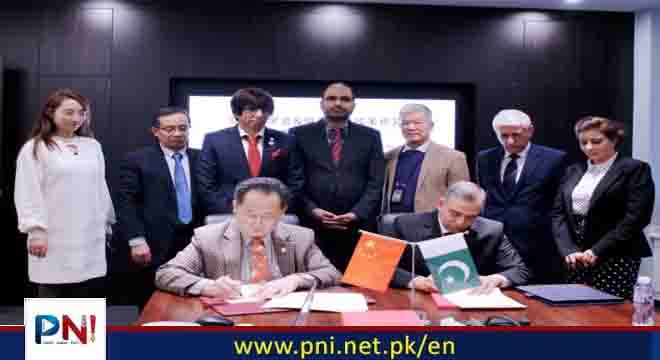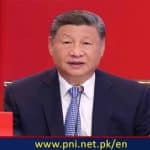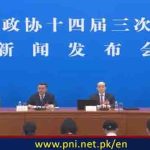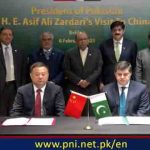BEIJING, Dec 24 :Chahar Institute and Islamabad Policy Research Institute (IPRI) jointly held a seminar on “CPEC and China-Pak Socio-cultural Connectivity” in Chengdu, China.
A four-member delegation led by Amb Dr Raza Muhammad, President IPRI, as well as a seven-member team led by Prof. Cheng Xizhong, Senior Research Fellow, Charhar Institute, delivered their speeches at the seminar.
Prof. Cheng Xizhong said that today’s world is full of turbulence and profound changes unprecedented in a century are accelerating. China-Pakistan relations possess strategic significance. China and Pakistan have maintained multi-level, wide-ranging and high-quality relations. China reiterates that China-Pakistan relations are a priority in China’s diplomacy, while Pakistan emphasizes that Pakistan-China relations form the cornerstone of its foreign policy.
Currently, both sides are continuously deepening cooperation across various sectors and accelerating the establishment of a closer China-Pakistan community with a shared future in the new era.
Both the Chahar Institute and the Islamabad Policy Research Institute are non-governmental think tanks that play a pivotal role in public diplomacy. They can significantly contribute to strengthening high-level political mutual trust between the two countries, deepening high-level practical cooperation and enhancing high-level international collaboration.
With their respective advantages, they can serve the construction of the China-Pakistan Economic Corridor and the China-Pakistan community with a shared future, actively contributing their wisdom and strength to the peace, stability, development and prosperity in the world and the region.
Amb Dr Raza Muhammad, President IPRI said that today’s event lays foundation of long term, mutually beneficial cooperation between Islamabad Policy Research Institute and the Charhar Institute.
Pakistan-China friendship has strengthened over the years. This bond of love and respect binds two nations and its people together. The vision of President Xi Jinping, the BRI and CPEC, have augmented this relationship.
Despite multiple hurdles created by our common enemies, these are progressing well. Inclusion of other countries in it can multiply the dividends.
“China a civilisational state has no history of annexation. Using soft power and win-win economic collaboration through BRI, rising China is being portrayed as a challenger to the prevalent global security, economic, technological and financial order”.
Consequently, we are witnessing a heighted competition, trade and tariff war, denial of markets, barring of technology and creation of multiple security and economic alliances in Asia -Pacific and Middle east to contain China.
This dynamic geostrategic and geoeconomic milieu warrants a very close and multifaceted cooperation between China and Pakistan.
BRI and CPEC, projects of colossal economic dimensions, are proving beneficial for member countries.
Poverty percentages: India 20-25%, Pakistan 24-30%, and Afghanistan 70-80% make a convincing argument that these countries should join hands with China to fight poverty and attain societal emancipation.
BRI, a reincarnation of Old Silk Road and CPEC are massive development projects. Despite opposition, BRI flourishes with over 140 members countries, 60% of world’s population, 40%-45% of global GDP, 3000 plus projects, investments of $4-5 trillion and potential for annual trade of over $2.5 trillion.
BRI aims to enhance connectivity, energy production, trade and industrialization.
CPEC is an unprecedented opportunity to boost social welfare by fostering economic growth, job creation, infrastructure development, and poverty alleviation. It also affords a more convenient and cost-effective connection to China through Gwadar deep seaport Gwadar will also help China to avoid Malacca Dilemma.
Pakistan and China need each other, more than ever now. Hence, they should develop joint strategy to navigate through the challenges being faced.
A memorandum of understanding (MoU) was signed between the two sides to enhance mutual understanding, cooperation, and the sharing of knowledge through academic and research collaboration
Follow the PNI Facebook page for the latest news and updates.








